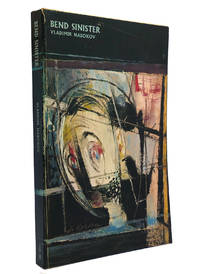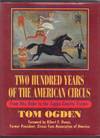
BEND SINISTER
by Vladimir Nabokov
- Used
- Paperback
- Condition
- See description
- Seller
-
Pomona, New York, United States
Payment Methods Accepted
About This Item
Synopsis
Vladimir Vladimirovich Nabokov was born on April 23, 1899, in St. Petersburg, Russia. The Nabokovs were known for their high culture and commitment to public service, and the elder Nabokov was an outspoken opponent of antisemitism and one of the leaders of the opposition party, the Kadets. In 1919, following the Bolshevik revolution, he took his family into exile. Four years later he was shot and killed at a political rally in Berlin while trying to shield the speaker from right-wing assassins. The Nabokov household was trilingual, and as a child Nabokov was already reading Wells, Poe, Browning, Keats, Flaubert, Verlaine, Rimbaud, Tolstoy, and Chekhov, alongside the popular entertainments of Sir Arthur Conan Doyle and Jules Verne. As a young man, he studied Slavic and romance languages at Trinity College, Cambridge, taking his honors degree in 1922. For the next eighteen years he lived in Berlin and Paris, writing prolifically in Russian under the pseudonym Sirin and supporting himself through translations, lessons in English and tennis, and by composing the first crossword puzzles in Russian. In 1925 he married Vera Slonim, with whom he had one child, a son, Dmitri. Having already fled Russia and Germany, Nabokov became a refugee once more in 1940, when he was forced to leave France for the United States. There he taught at Wellesley, Harvard, and Cornell. He also gave up writing in Russian and began composing fiction in English. In his afterword to Lolita he claimed: "My private tragedy, which cannot, and indeed should not, be anybody's concern, is that I had to abandon my natural idiom, my untrammeled, rich, and infinitely docile Russian tongue for a second-rate brand of English, devoid of any of those apparatuses--the baffling mirror, the black velvet backdrop, the implied associations and traditions--which the native illusionist, frac-tails flying, can magically use to transcend the heritage in his own way." [p. 317] Yet Nabokov's American period saw the creation of what are arguably his greatest works, Bend Sinister (1947), Lolita (1955), Pnin (1957), and Pale Fire (1962), as well as the translation of his earlier Russian novels into English. He also undertook English translations of works by Lermontov and Pushkin and wrote several books of criticism. Vladimir Nabokov died in Montreux, Switzerland, in 1977.
Reviews
(Log in or Create an Account first!)
Details
- Bookseller
- Rare Book Cellar
(US)
- Bookseller's Inventory #
- 148317
- Title
- BEND SINISTER
- Author
- Vladimir Nabokov
- Format/Binding
- Softcover
- Book Condition
- Used
- Edition
- Special Edition
- Binding
- Paperback
- Publisher
- Time Inc.
- Place of Publication
- New York
- Date Published
- 1964
Terms of Sale
Rare Book Cellar
Payment Methods Accepted Personal Checks, Cashiers Checks, Money Orders, Visa, MasterCard, AMEX and Discover card through PayPal.com Shipping and Refunds All items are shipped though the United States Postal Service. All items are returnable, within 10 days of receipt if not as described. If you have any special requests, questions or comments please feel free to contact us. Via Email: Info@rarebookcellar.com Via Phone: 845-512-8229
About the Seller
Glossary
Some terminology that may be used in this description includes:
- Text Block
- Most simply the inside pages of a book. More precisely, the block of paper formed by the cut and stacked pages of a book....
- Edges
- The collective of the top, fore and bottom edges of the text block of the book, being that part of the edges of the pages of a...

